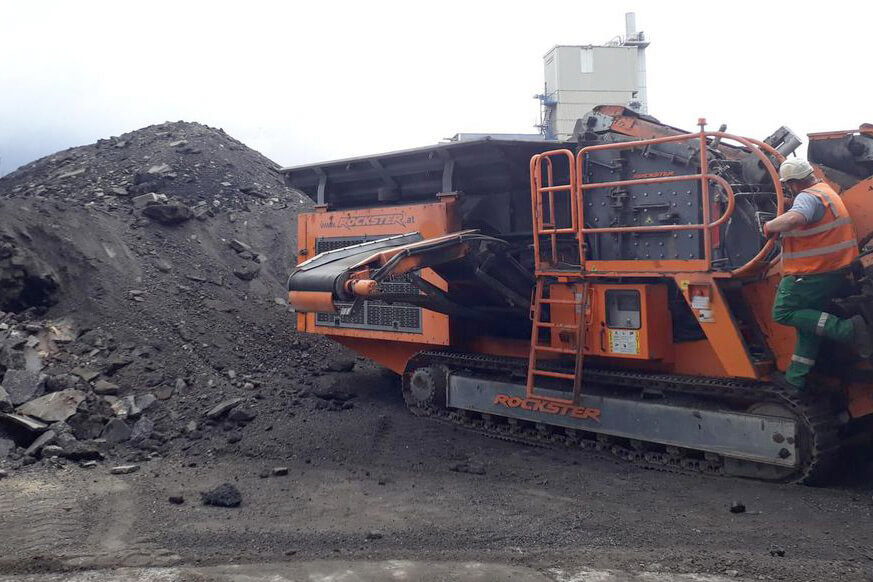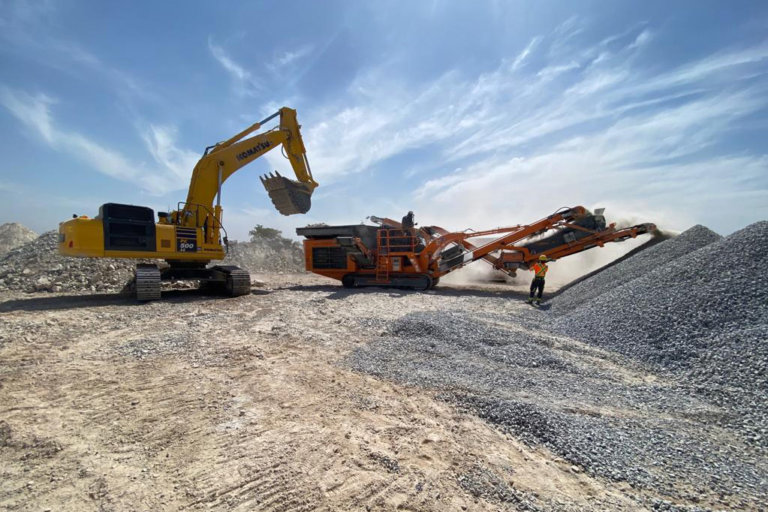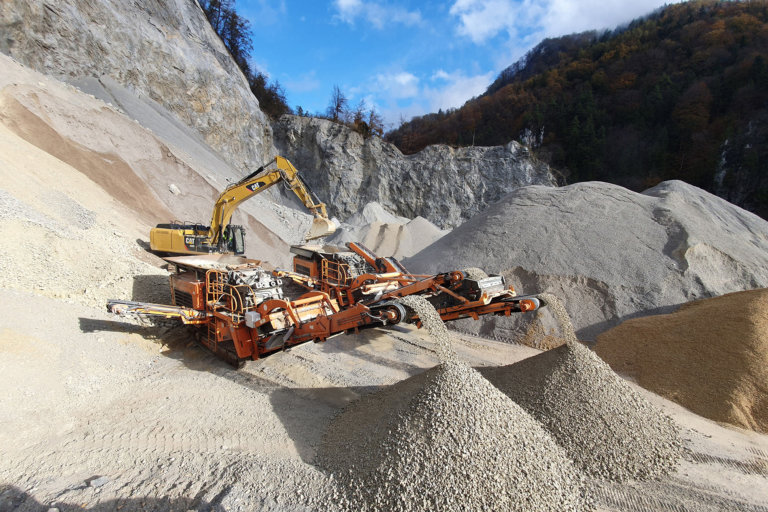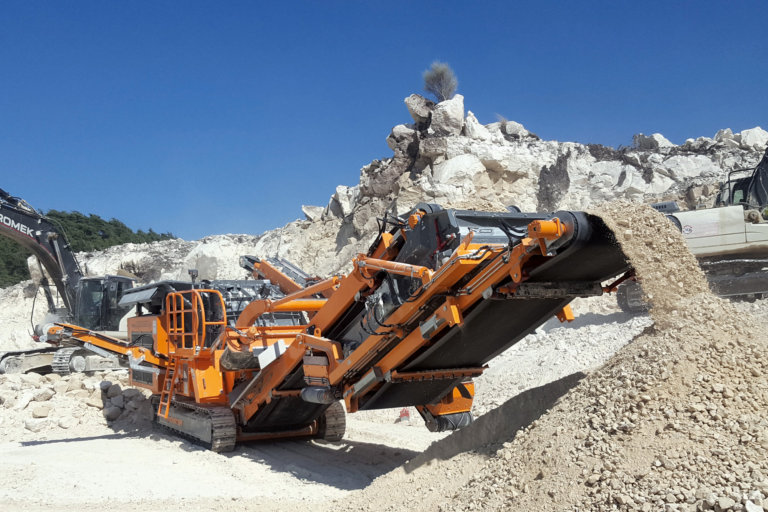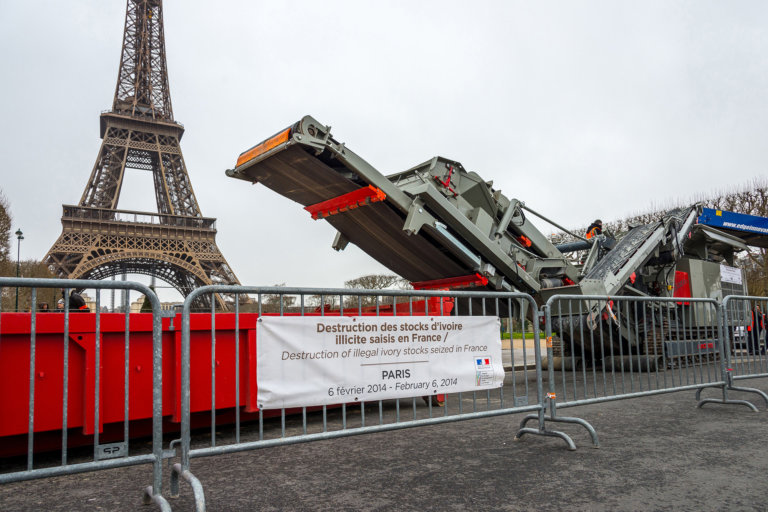Large quantities of Demolition Debris due to Supermétro
The new Grand Paris Express is a mega-project in the French capital, tunnel drilling machines are pumping up massive amounts of earth and rock, and the rubble from old buildings has to be processed. New metro stations and shops are being built; the city does not stand still. To conserve natural resources and create an efficient material cycle, gravel, construction waste and asphalt are recycled with a Rockster R1100S impact crusher and, for the most part, immediately reused.
Recycling at the port of Gennevilliers on the Seine
On an area of 7 hectares, this crushing plant produced 250,000 tons of new materials in one year, reused in new locations: "Sand and gravel of various sizes will be used in layers for new sidewalks," explains Christophe Jozon, Chairman of the Board Unicem (National Association of Quarry and Building Materials Industries). Old road material and concrete demolition are used in construction or in asphalt production. "I produce 250,000 tonnes of asphalt per year, in which I use about 20% recycled asphalt," explains Jean-Luc Bourges, Operations Manager of Asphaltwerke SEG in Ile-de-France.
Exceeded recycling requirements
Unicem is not concerned about the amount of building waste that needs to be recycled or used in the Greater Paris area. "We have 13 sites like this one in Ile-de-France, where we recycle waste from construction," explains Christophe Jozon. The loamy soil, which we can not recycle, is used to repair our quarries. "The union is already pleased with the results: in 2018, it surpassed the state's contracted target of 70% of the construction waste recycled in France, of which a total of 211 million, 148 million tonnes are recycled per year,." at 80%, considering only the recyclable materials, " says Christophe Jozon. "Our goal is to reach 90% over the next three years. "

